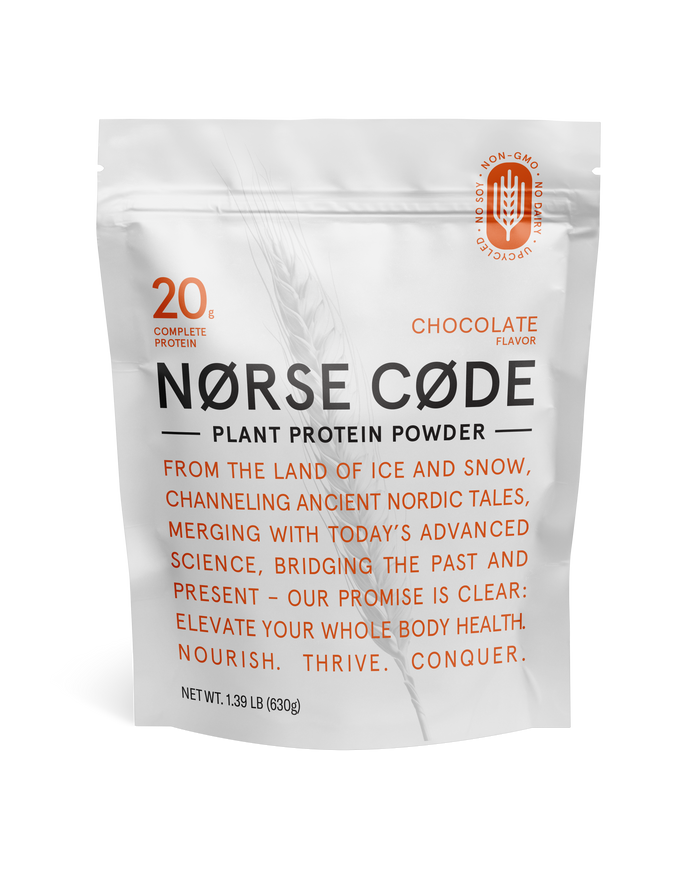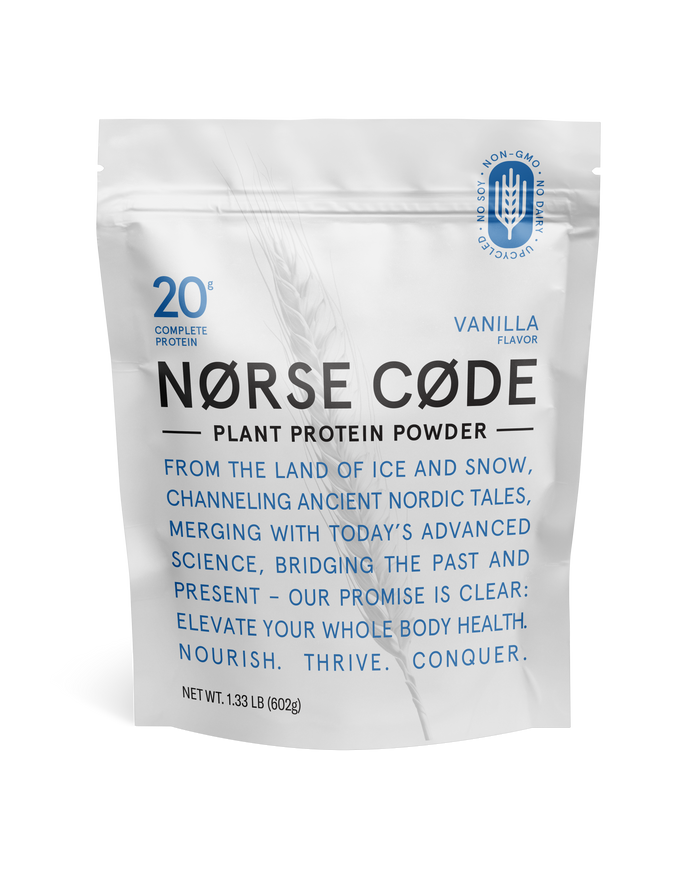
Plant-Based Protein Powder: Complete Guide to Vegan Protein Options
Looking for a protein boost without animal products? Plant-based protein powder offers a sustainable, ethical way to meet your protein needs. This guide breaks down everything you need to know about vegan protein options, from pea to brown rice and beyond.
Introduction
Plant-based protein powder has surged in popularity as more people seek alternatives to animal-derived supplements. Whether you're vegan, vegetarian, or simply cutting back on animal products, plant base protein provides a convenient way to boost your protein intake while aligning with your dietary preferences.
The plant protein market has exploded in recent years. What was once a niche product with limited options has evolved into a diverse category with formulations that rival traditional whey in taste, texture, and nutritional profile. Today's plant-based options offer complete amino acid profiles and excellent digestibility without compromising on quality or flavor.
As research continues to highlight the health and environmental benefits of plant-forward diets, more consumers are turning to vegan protein powder as their supplement of choice. Let's explore what makes these products stand out and how to choose the best option for your needs.
Types of Plant-Based Protein Powders
Pea Protein
Pea protein has emerged as a leading plant base option due to its impressive nutritional profile and mild flavor. Made from yellow peas, this protein source offers:
- High protein content (typically 24-28g per serve)
- Excellent digestibility (90-95% digestible)
- Complete amino acid profile with good levels of branch chain amino acids
- Naturally free from common allergens like dairy, soy, and gluten
Pea protein works well for post workout recovery due to its high leucine content, which helps trigger muscle protein synthesis. Its smooth texture and neutral taste make it versatile for various recipes and smoothies.
Brown Rice Protein
Brown rice protein offers another excellent option in the plant protein category. Derived from sprouted brown rice through enzyme treatment, it provides:
- Good protein content (typically 22-24g per serve)
- Hypoallergenic properties (well-tolerated by most people)
- Rich in branch chain amino acids that support muscle recovery
- High in methionine, an essential amino acid sometimes lacking in other plant proteins
While brown rice protein was once considered incomplete because it's lower in lysine, modern processing techniques have improved its amino acid profile. Many athletes find it works well for building muscle when consumed consistently.
Hemp Protein
Hemp protein comes from ground hemp seeds and offers unique benefits:
- Moderate protein content (16-20g per serve)
- Rich in essential fatty acids (omega-3 and omega-6)
- Contains all nine essential amino acids
- High in fiber (3-8g per serving) for digestive health
Hemp's earthy flavor works well in certain applications, though some find it has a stronger taste than other plant options. It's particularly popular among those seeking whole-food protein supplements with minimal processing.
Chia Seed Protein
Chia seed protein is a newer addition to the plant protein market:
- Moderate protein content (15-18g per serve)
- Exceptionally high in fiber and omega-3 fatty acids
- Contains all essential amino acids
- Rich in antioxidants and minerals like calcium and phosphorus
Chia seed protein works well in combination with other plant proteins to enhance the overall nutritional profile. Its natural thickening properties also add a pleasant texture to smoothies.
Mixed Plant Proteins
Many of today's best plant-based protein powders combine multiple plant sources to create an optimal amino acid profile. Common combinations include:
- Pea + brown rice: Creates a complete protein with excellent branch chain amino acid levels
- Pea + hemp: Combines high protein content with healthy fats
- Tri-blends of pea, brown rice, and chia seed: Offer comprehensive nutritional profiles
These blends address the amino acid limitations of single-source plant proteins and often provide better digestibility and texture. NØRSE CØDE's plant protein uses a strategic blend to deliver optimal nutrition and flavor.
Nutritional Profile
Essential Amino Acids in Plant Proteins
Proteins are made up of amino acids, with nine classified as "essential" because our bodies cannot produce them. A complete protein contains all nine essential amino acids in adequate proportions:
- Leucine, isoleucine, and valine (the branch chain amino acids)
- Histidine
- Lysine
- Methionine
- Phenylalanine
- Threonine
- Tryptophan
Traditionally, animal proteins were considered superior because they naturally contain all essential amino acids in optimal ratios. However, quality plant-based protein powders now match this nutritional profile through strategic formulation and improved processing.
Branch Chain Amino Acids (BCAAs)
BCAAs—leucine, isoleucine, and valine—are particularly important for muscle recovery and growth. They make up about 35% of the essential amino acids in muscle proteins and play key roles in:
- Stimulating muscle protein synthesis
- Reducing muscle soreness
- Decreasing exercise fatigue
- Supporting muscle recovery
Plant proteins vary in their natural BCAA content:
- Pea protein: High in BCAAs (approximately 18%)
- Brown rice protein: Good BCAA content (approximately 15%)
- Hemp protein: Moderate BCAA content (approximately 14%)
Quality plant-based protein powders often boost their BCAA content either through blending complementary proteins or adding isolated BCAAs to match or exceed the levels found in whey.
Protein Digestibility
How well your body can utilize plant protein matters as much as the amount consumed. Plant proteins have historically scored lower on digestibility metrics than animal proteins, but modern processing methods have significantly improved this aspect.
Top plant-based protein powders now feature:
- Enzyme treatments to improve digestibility
- Removal of anti-nutrients that can impair absorption
- Sprouting techniques that enhance bioavailability
- Protein isolate forms that are easier to digest than concentrates
These improvements mean that high-quality plant proteins can now achieve 90-95% digestibility rates, approaching those of animal proteins.
Health Benefits
Muscle Building and Recovery
Despite persistent myths, plant-based protein powder can effectively support muscle building and recovery. Research has shown that:
- When matched for protein content, plant protein can build muscle mass at rates comparable to whey
- Plant proteins rich in leucine (like pea protein) effectively stimulate muscle protein synthesis
- The fiber content in some plant proteins may enhance satiety and nutrient uptake
A landmark 2019 study published in the journal Sports Medicine found that supplementing with plant protein produced similar strength and body composition improvements as whey protein when total protein intake was matched.
For optimal results, aim for 20-30g of plant protein post workout, which provides the necessary amino acids for recovery and growth.
Weight Management
Plant-based protein powder offers several advantages for weight management:
- Higher fiber content increases feelings of fullness
- Lower calorie content than many animal proteins (especially when considering total nutrition)
- Zero cholesterol and typically less saturated fat
- Complex carbohydrates for sustained energy
The combination of protein and fiber helps stabilize blood sugar levels, which may reduce cravings and support healthy weight maintenance. Many people find that switching to plant protein helps them achieve their body composition goals more effectively.
Digestive Health
Many users report improved digestive comfort when switching from whey to plant protein. This may be due to:
- Absence of lactose and dairy proteins that can cause digestive distress
- Presence of beneficial fibers that support gut health
- Lower incidence of the bloating associated with whey concentrates
- Gentler processing methods that preserve digestive enzymes
NØRSE CØDE's plant-based options are specifically formulated for easy digestion, making them suitable for those with sensitive systems.
Heart Health
Plant-based protein powders may offer cardiovascular benefits:
- Zero cholesterol compared to animal-based options
- Often contain heart-healthy fats from sources like hemp and chia
- May help reduce inflammation markers associated with heart disease
- Contain beneficial compounds like antioxidants and phytonutrients
A comprehensive review in the Journal of the American Heart Association found that replacing animal proteins with plant proteins was associated with favorable changes in lipid profiles and other heart health markers.
Post-Workout Recovery
Plant-based protein works excellently for post-workout nutrition when used correctly:
Optimal Timing
For best results with plant protein after exercise:
- Consume within 30-60 minutes post workout for optimal recovery
- Pair with some carbohydrates to replenish glycogen stores
- Consider adding an enzyme blend if digestibility is a concern
- Aim for 20-30g of protein per serving
Recovery Benefits
Plant proteins support multiple aspects of recovery:
- Muscle repair through amino acid provision
- Inflammation reduction through antioxidant content
- Rehydration support when mixed with adequate fluids
- Energy replenishment through accompanying carbohydrates
Many athletes report that plant proteins cause less digestive distress during the sensitive post-workout window compared to whey or other animal proteins.
Quality and Sourcing
Organic Plant Sources
While not all plant proteins need to be organic to be high-quality, organic certification does provide certain assurances:
- Crops grown without synthetic pesticides and fertilizers
- No genetic modification (all organic products are non GMO)
- Stricter environmental and sustainability standards
- Often more rigorous testing for contaminants
Many premium plant-based protein powders use organic ingredients for these reasons, though this typically increases the price.
Non-GMO Verification
Non GMO verification is important to many consumers of plant protein. This certification ensures:
- No genetically modified organisms in the ingredients
- Testing throughout the supply chain
- Compliance with non-GMO standards
This is particularly relevant for plant proteins derived from crops commonly subjected to genetic modification, such as corn and soy.
Clean Ingredient Profiles
Quality plant-based protein powders feature clean, minimal ingredient lists:
- No artificial sweeteners or flavors
- Limited or no gums and thickeners
- No unnecessary fillers or preservatives
- Clear identification of protein sources
NØRSE CØDE's plant protein emphasizes clean ingredients and transparency, making it easier to know exactly what you're consuming.
Considerations for Use
Allergies and Sensitivities
While plant proteins eliminate dairy-related concerns, other allergies should be considered:
- Soy protein may trigger allergic reactions in sensitive individuals
- Some blends contain tree nuts or coconut
- Rice proteins may be cross-contaminated with gluten
- Some formulations include shared processing equipment with allergens
Always check the label for allergen warnings and processing information if you have specific sensitivities.
Artificial Sweeteners and Additives
Many conventional protein powders rely on artificial sweeteners to mask bitter flavors. Quality plant-based options instead use:
- Natural sweeteners like stevia or monk fruit
- Fruit extracts for flavor enhancement
- Vanilla, cacao, or cinnamon for natural sweetness
- Minimal or no added sweeteners at all
Avoiding artificial sweeteners can help prevent digestive discomfort and supports overall health goals.
Protein Isolate vs. Concentrate
Plant-based proteins come in different forms:
Protein Isolate:
- Higher protein percentage (90%+ protein)
- Fewer carbohydrates and fats
- Often easier to digest
- Usually smoother texture
Protein Concentrate:
- Lower protein percentage (70-85% protein)
- More whole-food nutrients retained
- Often less processed
- May contain more fiber
Your choice depends on your specific goals. Isolates work well for those strictly focused on protein intake, while concentrates offer a more whole-food approach.
Vegan and Ethical Considerations
Beyond nutrition, many choose plant protein for ethical and environmental reasons:
Environmental Impact
Plant-based protein powders typically have a significantly lower environmental footprint than animal-derived options:
- Lower water usage (up to 20 times less water than whey production)
- Reduced greenhouse gas emissions
- Less land required for production
- Often less energy-intensive processing
As sustainability becomes increasingly important, this represents a significant advantage for plant proteins.
Animal Welfare
For those concerned about animal welfare, vegan protein powder eliminates:
- Dairy industry practices that may cause animal suffering
- Reliance on industrial animal agriculture
- Consumption of animal-derived ingredients
- Support for industries that may not align with personal ethics
This makes plant protein an attractive option for ethically-conscious consumers who want to align their supplement choices with their values.
How to Choose the Best Plant-Based Protein
With so many options available, selecting the right plant protein can be challenging. Consider these factors:
Protein Content and Quality
- Look for at least 20g of protein per serving
- Check that all essential amino acids are present
- Verify the protein percentage relative to serving size
- Consider the amino acid profile, especially leucine content
Taste and Mixability
Even the most nutritious protein powder is useless if you won't drink it:
- Sample different flavors to find your preference
- Consider unflavored options for cooking flexibility
- Test mixability with different liquids
- Read reviews about taste and texture
Value Consideration
Rather than just looking at the price per container:
- Calculate the cost per gram of protein
- Consider the quality of ingredients relative to price
- Factor in any additional nutritional benefits
- Weigh organic certification value for your needs
NØRSE CØDE offers excellent value with high-quality plant protein at a competitive price point compared to other premium options.
Conclusion
Plant-based protein powder has evolved from a compromise alternative to a preferred option for many health-conscious consumers. With complete amino acid profiles, excellent digestibility, and clean ingredient lists, today's plant proteins offer all the benefits of traditional supplements without the drawbacks.
Whether you're motivated by health, ethical concerns, environmental impact, or simply curious about alternatives, modern plant protein formulations can effectively meet your nutritional needs. The key is choosing a high-quality product with transparent sourcing, clean ingredients, and a nutritional profile aligned with your specific goals.
By incorporating plant-based protein powder into a balanced diet, you can support muscle growth, aid recovery, manage weight, and contribute to overall health while making choices that align with broader values of sustainability and compassion.
NØRSE CØDE's plant protein embodies these principles, offering a clean, effective, and delicious way to meet your protein needs with plants alone.
This article is for informational purposes only and does not constitute medical advice. Always consult with a healthcare professional before making significant changes to your diet or supplement regimen.
NØRSE CØDE Chocolate Plant Protein Powder
- Regular
- $44.50
- Sale
- $44.50
- Regular
-
- Unit Price
- per
NØRSE CØDE Vanilla Plant Protein Powder
- Regular
- $44.50
- Sale
- $44.50
- Regular
-
- Unit Price
- per
NØRSE CØDE Stainless Shaker
- Regular
- $35.00
- Sale
- $35.00
- Regular
-
- Unit Price
- per




